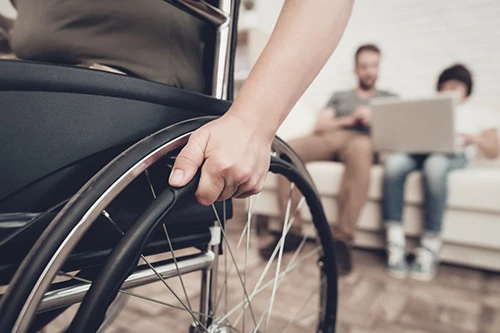Table of Contents
Comparative negligence allows an accident victim to receive compensation for injuries even if they are partly responsible for the incident. Recently, Florida has modified the comparative negligence law, which can impact your ability to recover damages if you share responsibility for an accident. Understanding these changes to state negligence laws is critical to knowing your legal rights.
Overview of Florida’s Comparative Negligence Law
Comparative negligence definition is simply how the fault is shared among parties in an accident. Florida’s comparative negligence system allows for a more equitable distribution of damages based on each party’s degree of fault. This principle will enable victims to recover damages even if they share some responsibility for the incident, though their percentage of fault reduces their compensation.
On the other hand, a contributory negligence state makes it impossible for plaintiffs to receive any damages if they are found to be negligent at all. Reaching out to an attorney is essential in helping you understand the details of Florida negligence law. A legal professional will help define comparative fault and walk you through the process.
Modified Comparative Negligence
Florida uses a model known as modified comparative negligence. This system permits plaintiffs to recover damages only if their fault does not exceed 50%. If you are more than 50% responsible for an accident, you may not be entitled to compensation under the Florida negligence law in 2023 passed by HB 837 Florida.
Percentage Fault for Parties Involved
The distribution of damages in Florida revolves around the concept of percentage fault. Each party’s level of responsibility for the accident is determined, which influences the compensation amount. For example, if a party is found 30% at fault, they will only recover 70% of the total damages awarded. Comparative negligence doesn’t offer compensation for responsibility above 50%.
Example of Comparative Negligence in an Auto Accident
One way to better understand comparative negligence is to consider a scenario between two drivers. The first driver is found to be 40% at fault, while the second driver carries 60% of the fault. If the total damages amount to $100,000, the first driver can recover 60% of this sum, which reflects their lower percentage of fault in the incident.
Filing a Personal Injury Claim
Knowing how to file a personal injury claim is vital in comparative negligence states. A legal team will identify all parties involved to help establish the fault percentages. This process consists of collecting evidence, such as witness statements and accident reports, to support a claim further.
Navigating Florida’s Comparative Fault Framework
This legal framework offers a structured approach to assessing fault and distributing damages among parties involved in a personal injury case. Understanding this system is key to effectively navigating the legal proceedings and reaching fair compensation.
Proof in Comparative Negligence Cases
Presenting convincing evidence is critical in comparative negligence cases. In Florida, comparative negligence requires you to demonstrate the extent of your injuries, the other party’s negligence, and how their actions contributed to the accident. Adequate proof can significantly impact the outcome of comparative liability cases.
Role of Legal Representation in Recovering Damages
Trying to understand modified comparative negligence in Florida alone can be challenging. A lawyer is typically aware of the elements of negligence in Florida and will oversee the details of this on your behalf. Using a knowledgeable attorney is invaluable when dealing with Florida’s comparative negligence law.
Legal professionals can quickly help determine liability for negligence under Florida law. This process includes gathering evidence, calculating fault percentages, and representing your interests in court and settlement negotiations. Working with an experienced law firm will maximize your chance of a favorable outcome.

